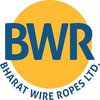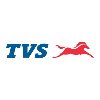

Bharat Wire Ropes




10+ Bharat Wire Ropes Interview Questions and Answers
Q1. How to find what item you purchased right material?
To find the right material for a purchase, conduct thorough research, analyze specifications, compare prices and quality, and seek recommendations.
Research different suppliers and manufacturers to identify the available materials.
Analyze the specifications of each material to ensure it meets the required standards and criteria.
Compare prices and quality of the materials from different sources to make an informed decision.
Seek recommendations from industry experts, colleagues,...read more

Q2. How to Negotiate with Vendor in terms of Evolution.
Negotiating with vendors involves effective communication, research, and finding mutually beneficial solutions.
Prepare by researching market prices and vendor alternatives.
Clearly communicate your requirements and expectations.
Listen to the vendor's perspective and understand their constraints.
Explore options for cost reduction, bulk discounts, or value-added services.
Consider long-term partnerships and loyalty programs.
Be open to compromise and find win-win solutions.
Documen...read more

Q3. How to calculate material actual price
Material actual price can be calculated by considering the cost of raw materials, production expenses, and overhead costs.
Calculate the cost of raw materials used in production
Include production expenses such as labor, utilities, and equipment costs
Factor in overhead costs like rent, insurance, and administrative expenses
Sum up all these costs to determine the material actual price

Q4. Last Company material purchase strategy ?
The last company's material purchase strategy involved optimizing procurement processes, leveraging supplier relationships, and implementing cost-saving measures.
Implemented a centralized procurement system to streamline purchasing activities
Negotiated long-term contracts with key suppliers to ensure stable pricing and availability
Conducted regular supplier evaluations to assess performance and identify areas for improvement
Implemented cost-saving measures such as bulk purcha...read more

Q5. How to find shortage ?
To find shortage, analyze inventory levels, track demand, and monitor supply chain.
Analyze inventory levels regularly to identify any shortages.
Track demand patterns and forecast future demand to anticipate shortages.
Monitor the supply chain for any disruptions or delays that may lead to shortages.
Maintain good communication with suppliers to ensure timely delivery of goods.
Implement effective inventory management techniques like Just-in-Time (JIT) to minimize shortages.
Utili...read more

Q6. How to get right item.
To get the right item as a Purchase Manager, one must consider factors such as quality, price, supplier reliability, and specific requirements.
Define the specific requirements and specifications of the item needed
Research and identify potential suppliers or vendors
Evaluate the quality and reliability of the suppliers
Compare prices and negotiate for the best deal
Consider factors like delivery time, after-sales support, and warranty
Seek recommendations or references from truste...read more

Q7. What is 7qc tool and Regrading mttr, mtbf, and some question releted to types of breakdown types of failure and how can reduce mttr.
7QC tools are quality control tools used to identify and solve quality-related issues. MTTR stands for Mean Time To Repair, MTBF stands for Mean Time Between Failures.
7QC tools include Pareto analysis, cause-and-effect diagram, scatter diagram, etc.
MTTR is the average time taken to repair a failed component or system.
MTBF is the average time between failures of a component or system.
Types of breakdowns can include mechanical, electrical, software, etc.
Types of failures can in...read more

Q8. What's the heat treatment ? What's process you're currently doing ? What's the knowledge about pettenting process ?
Heat treatment is a process used to alter the physical and sometimes chemical properties of a material through heating and cooling.
Heat treatment involves heating a material to a specific temperature, holding it at that temperature for a certain amount of time, and then cooling it at a controlled rate.
Common heat treatment processes include annealing, tempering, quenching, and case hardening.
Pettenting is a heat treatment process used to improve the hardness and wear resistan...read more


Q9. how to manage network with level 1 switch
Managing a network with a level 1 switch involves basic configuration and monitoring.
Assigning IP addresses to devices connected to the switch
Setting up VLANs for network segmentation
Monitoring network traffic and performance using basic tools like ping and traceroute
Implementing basic security measures such as MAC address filtering
Troubleshooting connectivity issues by checking cable connections and device configurations

Q10. What is the type of gear?
I'm sorry, but I need more context to answer this question.

Q11. how to repair desktop and laptop
To repair desktop and laptop, troubleshoot hardware and software issues, replace faulty components, update drivers and software, and perform system diagnostics.
Troubleshoot hardware and software issues
Replace faulty components such as RAM, hard drive, or motherboard
Update drivers and software to the latest versions
Perform system diagnostics to identify the root cause of the problem

Q12. What type of Procurement experience?
I have extensive experience in strategic sourcing, supplier relationship management, contract negotiation, and cost reduction initiatives.
Strategic sourcing to identify cost-saving opportunities
Supplier relationship management to ensure timely delivery and quality products
Contract negotiation to secure favorable terms and conditions
Cost reduction initiatives to optimize procurement processes
Experience in implementing e-procurement systems for efficiency
Knowledge of market tre...read more

Q13. What is the type of bearings?
There are various types of bearings including ball bearings, roller bearings, needle bearings, and thrust bearings.
Ball bearings are the most common type and are used in applications such as electric motors and household appliances.
Roller bearings are used in heavy-duty applications such as conveyor belts and large machinery.
Needle bearings are used in applications with limited space and high load capacity, such as automotive transmissions.
Thrust bearings are used to support ...read more

Q14. What do you know about wire drawing machine





Top HR Questions asked in Bharat Wire Ropes
Interview Process at Bharat Wire Ropes

Top Interview Questions from Similar Companies









Reviews
Interviews
Salaries
Users/Month












